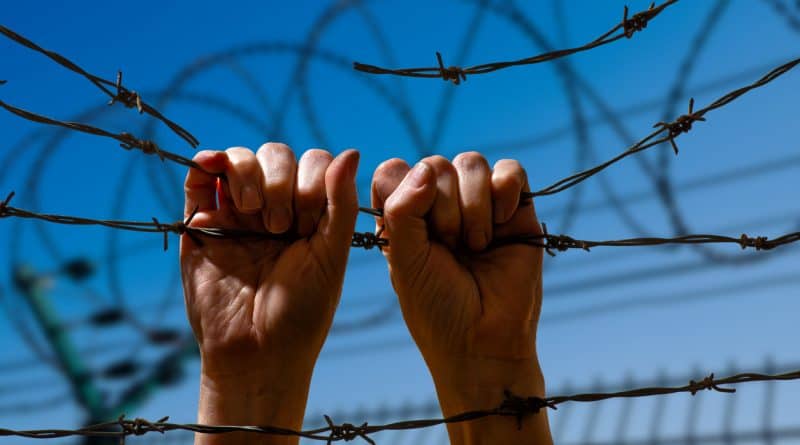Kyrgyzstan: torture remains widespread practice
Tortures in the republic are poorly investigated, and the torturers remain unpunished. This is the conclusion reached by human rights defenders of the Coalition against Torture of Kyrgyzstan, who prepared an alternative report on the Kyrgyz Republic’s compliance with the Convention against torture and other cruel, inhuman or degrading treatment of punishment.
The report is based on the results of the Coalition’s own activities, as well as on the basis of data published by government agencies and publications in the media.
The authors of the document consider that since the submission of the Second Periodic Report in November 2013, the government and state bodies of the Kyrgyz Republic have taken certain steps to combat torture and impunity.
They note that the prohibition on the use of torture was enshrined in the provisions of the Constitution, laws and other normative legal acts that determine the procedure, including proceedings in criminal cases, the procedure and conditions of detention of persons suspected and accused of committing crimes, the procedure and conditions of stay in specialized institutions of the education system, health care and social security.
In 2014, the Ministry of Health developed the Practical Guide on effective documentation of violence, torture and cruel treatment for medical specialists of the Kyrgyz Republic, which became the national document based on the principles of the Istanbul Protocol. In addition, the issues of medical documentation of torture and cruel treatment are included in the curricula of higher medical educational institutions, training and professional development programs for medical workers.
In 2016, a new law “On state-guaranteed legal aid” was adopted, which expanded the list of persons entitled to receive state-guaranteed legal aid. In accordance with the new law, without taking into account the annual income, qualified legal assistance is provided to all persons without exception in cases of their arrest, as well as to those accused, defendants of especially grave crimes.
“Despite these positive changes, the practice of using torture remains widespread. In Kyrgyzstan, no one is completely protected from torture, and everyone can become a victim of torture at any time,” the authors of the report believe.
The authors of the document are convinced that no positive changes are taking place in terms of eradicating torture, in particular because the practice of prompt, impartial and full investigation of allegations of torture and cruel treatment has not been formed. On the contrary, the transfer of powers to investigate torture cases from investigators of the Prosecutor’s office to investigators of the State Committee for National Security, in accordance with the provisions of the new Criminal Procedure Code, led to a decrease in the effectiveness of the investigation.
The Human Rights Committee has issued more than a dozen decisions in which official investigations carried out by the investigative authorities of Kyrgyzstan are recognized as ineffective. However, the quality of investigations is not improving.
The country also failed to create an effective mechanism for the implementation of decisions of international human rights bodies. The Views of the Human Rights Committee, including those that establish a violation of the right to freedom from torture and cruel treatment, remain unfulfilled, and there is no official information on the measures taken by Kyrgyzstan to implement the Committee’s Views.
On December 28, 2016, ex-President Almazbek Atambaev signed the law “On amendments to the Constitution of the Kyrgyz Republic”, according to which the provision (Article 41, part 2), if the international human rights bodies recognize violations of human rights and freedoms, Kyrgyzstan will take measures to restore them and/or compensate for damages, was excluded from the text of the Constitution as well as the provisions on the direct operation of international treaties on human rights and on their priority over the norms of other international treaties (Article 6, part 3).
Following these changes to the Constitution, at the initiative of the government, on June 25, 2020, the Parliament of the Kyrgyz Republic adopted a law that excluded the possibility of resuming proceedings and reviewing criminal cases as a measure to achieve restitutio in intergrum if an international human rights body, including the Human Rights Committee, in their decision, found a violation by Kyrgyzstan of human rights and freedoms, committed during the consideration of the criminal case.
The only mechanism for applying the implementations of the Committee’s decisions has been violated. Article 442 of the Criminal Procedure Code built “a bridge” between the national judicial system and international structures, including the UN. The abolition of this mechanism severed this link.
“In addition, there is a risk that the institution of reviewing a criminal case on new circumstances will be abolished in cases, where international human rights bodies reveal violations of human rights and freedoms committed during the consideration of a criminal case within the framework of national legal proceedings. The only mechanism for the implementation of the decisions of the Committee may be annihilated; the only “bridge” between the national judicial system and international human rights mechanisms can be destroyed,” the human rights defenders noted in their report.
They emphasize that there is an experience of paying compensation for non-pecuniary damage to persons for whom the Human Rights Committee found a violation of the right to freedom from torture, but the amount of compensation does not meet the criteria of reasonableness and fairness. The current legislation of the Kyrgyz Republic does not regulate the procedure for calculating the amount of moral damage.
“Traditionally, the acute situation is with complaints about the illegal use of violence against persons who are in places of detention and restriction of freedom. The main problem is the difficulties in verifying complaints and registering evidence of possible human rights violations in such institutions,” the authors of the report write.
Often, even after registering an application in the Unified Register of crimes and misdemeanors, investigators don’t take active steps to establish the circumstances of the commission of a crime in torture cases, which is illustrated by specific examples in this report.
According to the official data of the Prosecutor General’s Office of the Kyrgyz Republic for the period from 2013 to 2017, 54 criminal cases were sent to court on charges of 108 persons with the crime “Torture”. Of these, only twelve were found guilty by the court and were sentenced to prison terms from 7 to 11 years.
In 2019, the court considered 7 criminal cases on charges of 26 persons with torture. And only two were found guilty. They were sentenced to imprisonment for a term of 8 years. However, this verdict was also changed by a higher court, which reclassified the actions of the defendants from torture to the excess. All defendants evaded punishment due to the expiration of the statute of limitations for criminal prosecution. Thus, of these 26 defendants who were accused of torture, none were actually punished.
From this it can be concluded that, despite numerous allegations of torture, the number of those convicted and subjected to real punishment for the use of torture remains small, and few are prosecuted for these crimes.
In addition, as the authors of the document note, quarantine measures in the context of COVID-19 blocked the activities of the National Center for the prevention of torture and other cruel, inhuman or degrading treatment or punishment, and its representatives could not visit places of detention.
“In the conditions of the state of emergency, that was introduced in the cities of Bishkek, Osh, Jalal-Abad and some regions of the country from March 25 to May 10, 2020, a strict regime of movement was established only with special passes issued by the Commandant’s office. The absurdity of the situation was that it was only possible to obtain a specialized pass when visiting the buildings of the territorial Commandant’s offices, which, due to their remoteness, were physically inaccessible to lawyers. Thus, the commandants created obstacles to citizens and lawyers in obtaining and in providing qualified legal assistance guaranteed by the Constitution,” the report notes.
The authors of the document summarize that the lack of a mechanism for interagency interaction during the epidemic, including unloading the penitentiary system, the suspension of all trials during the epidemic until July 2020 led to a massive violation of prisoners’ rights to defense, legal assistance, and a fair trial.
In addition, numerous violations of the procedural terms and examination procedure for considering issues of changing/extending the preventive measure in the form of detention were revealed. The procedure for conducting online court hearings in the pre-trial detention center No.1 was organized in such a way that lawyers were virtually unable to communicate with their clients in confidentiality.
From 7 to 27 August 2020, the order of the head of the pre-trial detention center under the State Committee for National Security was in force. It prohibited visits to lawyers and other persons, detained suspects/accused held in “quarantine” for up to 14 days. That is, these persons were kept “incommunicado”, without contact with the outside world for two weeks.
The Uzbek journalist Bobomurod Abdullaev also experienced this practice. He was taken into custody in the jail at the State Committee for National Security on August 10, 2020, and until his extradition to Uzbekistan on August 22, his lawyers were denied a meeting with him without explanation.
“There is no doubt that the decision of the Commandant’s offices and the administration of closed institutions to restrict the activities of lawyers was illegal. The commandant or the head of the institution cannot cancel by his decision the guarantees of the observance of human rights, including legal protection, prescribed by the Constitution. The law on the state of emergency itself also doesn’t allow the suspension of advocacy in the territory where the state of emergency has been declared. The authorized bodies should give a legal assessment of the actions of the heads of the power structures and the State Penitentiary Service,” the authors of the alternative report believe.
In addition, they note that legislative initiatives are actively being promoted in the republic, which can limit the possibilities of human rights defenders to carry out their activities, that directly affects the activities of organizations who are the members of the Coalition against Torture. There are cases of intimidation and attacks on human rights defenders and lawyers who defend the interests of torture victims.




